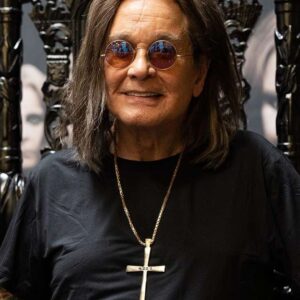The Bodyguard: A Bittersweet Masterpiece of Love, Legacy, and Imperfection
I first saw The Bodyguard in the early ’90s—back when movie nights were an event and MTV still played music videos. Decades later, the film remains unforgettable: Kevin Costner, all quiet intensity as Frank Farmer, and Whitney Houston, luminous and commanding in her big-screen debut as superstar singer Rachel Marron. Their chemistry burned bright, and that iconic soundtrack—especially Whitney’s soaring cover of “I Will Always Love You”—became an anthem for a generation.
Few realize the film nearly didn’t happen. Lawrence Kasdan wrote the screenplay in 1975, originally envisioning Diana Ross and Steve McQueen. It would take nearly two decades for the story to reach the screen, thanks in part to Costner, who co-produced and championed casting Whitney Houston—despite her lack of acting experience. “I thought she was the most beautiful woman I’d ever seen,” he later shared. His intuition paid off. Houston brought remarkable vulnerability and grace to Rachel’s struggles with fame, love, and fear.
From the opening frames—Frank navigating the shadows to shield Rachel from unseen threats—the film grips you. Even its imperfections feel endearing: a “FUNERAL” placard that mysteriously switches sides on a limo windshield, dolls that vanish and reappear mid-scene, and a bar code scanner that magically reads a perforated wristband. These bloopers remind us of the human hands behind the spectacle.
The film’s Oscar-night climax still raises heart rates. In reality, nominees sit close to the stage, but Rachel emerges from the 20th row as tension builds. It’s not a mistake—it’s a choice that heightens suspense. When Frank throws himself in front of the bullet and later lies in the hospital with no oxygen mask despite visible IVs, it’s not textbook realism. But the focus stays where it belongs: on emotion. On Frank’s stoicism. On Rachel’s fear. And ultimately, on their deep, wordless connection.
Whitney’s vocals brought everything to life. Her rendition of Dolly Parton’s “I Will Always Love You” became a cultural milestone. Dolly herself recalled pulling over to listen the first time she heard it. The song, much like the film, married two worlds—country roots and pop grandeur—and found magic in the mix.
But behind the scenes, tragedy struck. On January 3, 1992, a grip-truck driver, William Vitagliano, was fatally injured when two lighting cranes collided on set. The incident led to a lawsuit and cast a somber shadow over production—a reminder that film crews face real risks in creating movie magic.
Even the film’s most iconic image—the poster showing Frank carrying Rachel—has a backstory. That’s not Whitney in his arms, but her body double. Studio concerns about racial perception led to the use of a shot with her face turned. But it was Costner who insisted on the image, prioritizing emotion over exposure. “Her head on my shoulder—that was the whole movie,” he later said.
Though critics were mixed at the time, audiences spoke louder. The Bodyguard earned over $400 million globally, making it the second-highest-grossing film of 1992. Costner believed its success lay in the “healthy man-woman dynamic”—Frank’s stoic professionalism clashing with Rachel’s fiery independence. The result? An unforgettable romance capped by a goodbye kiss on the tarmac, Whitney’s voice rising as the credits rolled.
Some intimate scenes were filmed but never used—like one where Frank bathes Rachel in a nightclub restroom. Whitney declined their inclusion, telling Vanity Fair, “They’re not hiring me to show my body.” Her words reflected not just artistic boundaries, but a determination to control how she was portrayed in Hollywood.
Through every cinematic flaw—misplaced props, awkward edits, or medical oversights—The Bodyguard holds fast to its emotional core. Its imperfections make it feel real. And at its heart is something lasting: Costner’s strength, Houston’s warmth, and a story about love that protects, even from a distance.
Today, more than thirty years on, The Bodyguard remains a study in contrast: fame and fear, grit and glamour, the public stage versus private longing. It endures not because it’s perfect, but because its sincerity outshines its stumbles. And for those who loved Whitney, it stands as a tribute to her voice, her courage, and her undeniable presence.
Whitney, you will always be remembered. Kevin, your quiet steadiness anchored a storm. Together, you showed the world that protecting someone’s heart can be the most powerful act of love.





